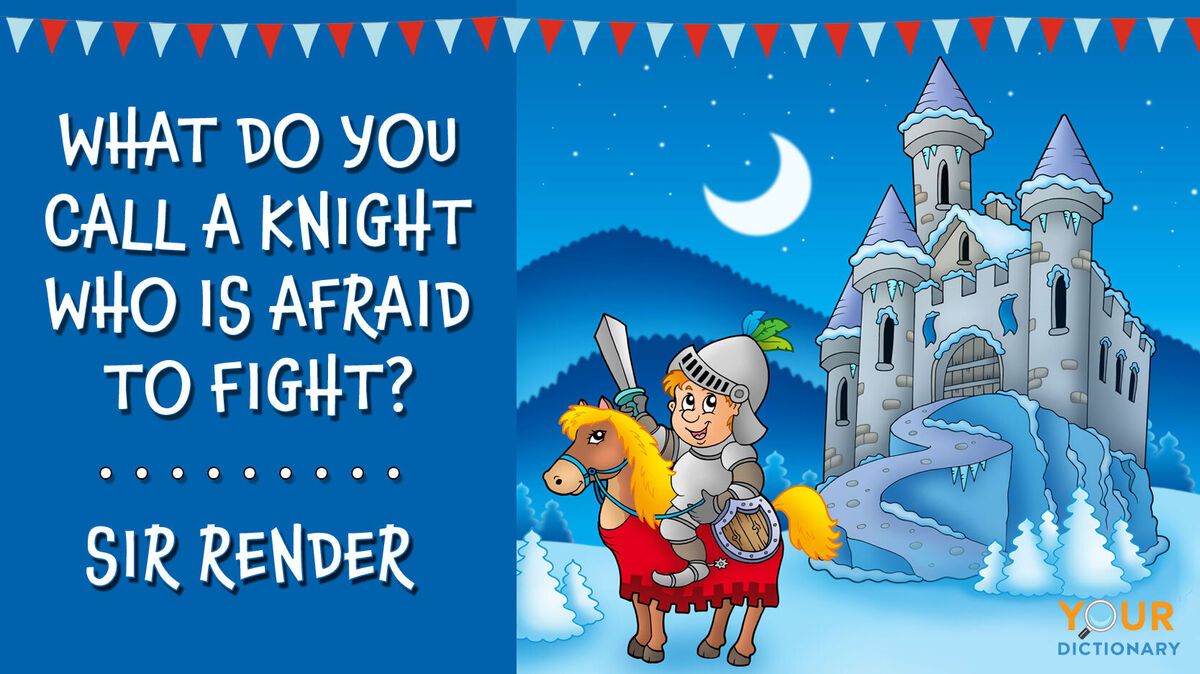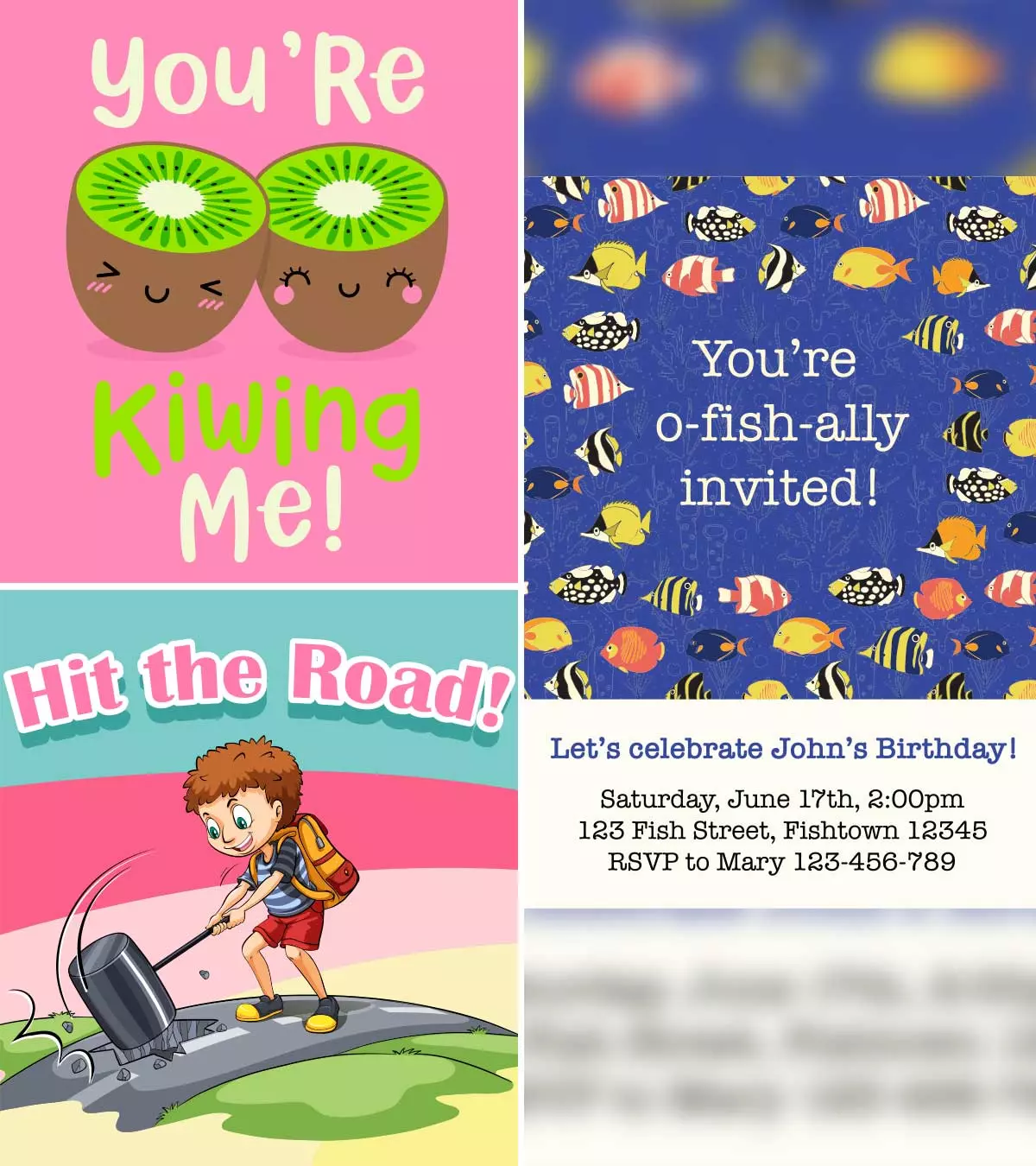Puns are a fun way to play with language. Kids love them because they are silly and clever.
Understanding puns can help children enjoy reading and develop their sense of humor. Puns are jokes that use words with multiple meanings or similar sounds. They make us laugh because they surprise us with unexpected connections. Introducing kids to puns can spark their creativity and improve their language skills.
Plus, sharing puns is a great way for families to bond and enjoy time together. In this blog post, we will explore some delightful examples of puns for kids. These will bring smiles and laughter to young faces. Get ready for a pun-filled adventure!

Credit: www.momjunction.com
What Are Puns?
Puns are funny plays on words. They use words that sound the same but have different meanings. Puns can also use words that have multiple meanings. They make people laugh and think. Puns are a fun way to play with language. Kids enjoy using puns to be clever and silly. It’s a great way to learn new words and meanings.
Kids love puns because they are funny. Puns make kids laugh and think at the same time. They enjoy the clever twist in the words. Puns help kids learn language in a fun way. Sharing puns with friends is enjoyable. It makes conversations lively and joyful.
Types Of Puns
Homophonic puns use words that sound the same. They have different meanings. For example, “Why did the scarecrow win an award? He was outstanding in his field.” The word “outstanding” sounds the same as “out standing”. This makes it funny.
Homographic puns use words that look the same. They have different meanings. For example, “I used to be a baker. But I couldn’t make enough dough.” The word “dough” can mean money or bread dough. This makes it clever.
Animal Puns
Animal puns bring joy to kids with wordplay like “Why did the cow become an astronaut? To see the moooon!” These playful jokes brighten their day.
Pet-related Jokes
Why did the cat sit on the computer? To keep an eye on the mouse! How do you know if a dog is a great comedian? It always leaves the audience howling! Why did the bird join the band? Because it had the best tweets! These jokes are fun and easy to remember.
Zoo Adventures
What did the lion say to his friends before dinner? “Let’s go for a roar-some meal!” Why are elephants never rich? Because they work for peanuts! What do you call a bear with no teeth? A gummy bear! Such jokes make trips to the zoo more exciting and educational.

Credit: www.yourdictionary.com
Food Puns
Food puns can be very funny. For example, “lettuce celebrate” uses the word “lettuce” instead of “let us.” Another one is “I yam what I yam,” which is a play on the word “yam.” These puns make us laugh and think.
Kids love food puns because they are easy to understand. “I’m on a seafood diet. I see food and I eat it.” This pun is silly but fun. “You’re the apple of my pie” makes us smile.
Food puns can also teach kids about nutrition. “Don’t go bacon my heart” can remind kids to eat less bacon. “Orange you glad to see me?” can teach them about oranges. “Peas and love” reminds them that peas are healthy.
Puns make learning fun. “Donut give up” encourages kids to stay positive. “You’re one in a melon” boosts their confidence. Puns can be delicious and educational.
School-themed Puns
Why did the math book look sad? Because it had too many problems. Why don’t scientists trust atoms? Because they make up everything. What did the pencil say to the paper? You have a good point.
Why did the student eat his homework? The teacher said it was a piece of cake. Why was the music room so popular? It had the best notes. How do you organize a space party? You planet.
Nature Puns
A snowman’s favorite snack is an ice-cream cone. Why do birds fly south in winter? It’s too far to walk. Spring is nature’s way of saying “Let’s party!” What does a cloud wear under his raincoat? Thunderwear. Why did the sun go to school? To get brighter.
How do trees get online? They log in. Why did the tree go to the dentist? It needed a root canal. What is a tree’s least favorite month? Sep-timber. Why did the gardener plant a light bulb? He wanted to grow a power plant. What did the big flower say to the little flower? “Hey, bud!”
Holiday Puns
During holidays, funny puns can bring smiles. Deck the halls with lots of laughs! Santa’s helpers love to wrap up a good joke. Snowman jokes never melt away. Kids can say, “I’m snow excited for Christmas!” Reindeers love to hoof it to the party. These jokes make everyone jolly.
Celebrations are fun times. Kids learn while they laugh. Present puns are the best gifts. “Why did the turkey join the band?” It had the drumsticks! On Halloween, kids say, “Boo-ckle up for some fun!” Learning with jokes is great. Simple puns make holidays memorable. Children enjoy sharing these with friends.
Sports Puns
Why did the soccer ball go to school? It wanted to get a little kick out of learning. What is a cheerleader’s favorite color? Yeller!
Why are baseball players such bad bowlers? They always strike out. How do you keep a basketball arena cool? Use lots of fans.
How To Create Puns
Think of a word with two meanings. Choose one meaning. Find another word that sounds similar. Use the two words together in a sentence. Make sure the sentence is funny. Puns often play with words. They can be silly or clever. Try different ideas. See which ones make you laugh.
Ask kids to think of funny words. Let them write sentences with puns. Share puns with friends. Laugh together. Practice makes perfect. Kids can get better at puns over time. Encourage them to be creative. Have fun with words. Explore different meanings. Enjoy the process. Keep trying new ideas. Creativity grows with practice.

Credit: www.momjunction.com
Frequently Asked Questions
What Are Puns?
Puns are jokes that play with words. They use similar sounds or meanings.
Why Are Puns Good For Kids?
Puns help kids learn language. They improve vocabulary and thinking skills. Plus, they’re fun!
Can Puns Be Educational?
Yes, puns teach word meanings. They encourage creative thinking. Great for learning!
Are Puns Easy To Understand?
Yes, most puns are simple. Kids can easily get them. They are fun and catchy.
How Do Puns Improve Language Skills?
Puns teach wordplay. They show how words can have different meanings. It builds language skills.
What Are Some Examples Of Puns For Kids?
Examples: “Why did the scarecrow win an award? He was outstanding in his field. “
Can Puns Be Used In School?
Yes, teachers use puns to make lessons fun. They are great for engaging kids.
Are Puns Only In English?
No, puns exist in many languages. Wordplay is universal. It’s a fun way to learn any language.
How Can I Make Puns?
Think of words with multiple meanings. Create a joke around them. Simple and fun!
Do Puns Have To Be Funny?
Not always, but they usually are. The humor comes from wordplay and surprise.
Conclusion
Puns make kids laugh and learn at the same time. They bring joy and creativity to conversations. Sharing puns can spark a child’s imagination. Simple wordplay helps improve language skills. Kids love the fun twist in meanings. Encourage them to create their own puns.
It’s a playful way to bond and communicate. Enjoy these puns with kids and watch their smiles grow. Laughter truly is the best medicine. Keep the fun going with more puns every day.


Comments